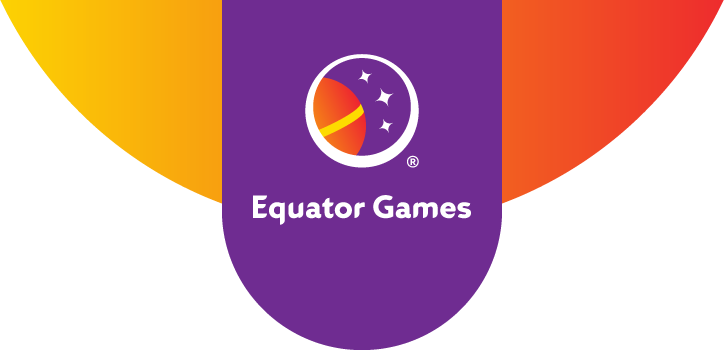Diminishing marginal returns refers to the decreasing amount of additional benefit we receive when acquiring an additional unit of a given resource.
The crunchy and the beautiful
Behold, a basketful of hot, crispy french fries, golden and heavenly. It’s been a long day, and you earned this. Your fingers pluck a fry from the basket and plunge it halfway into a nearby saucer of ketchup (or mayonnaise, or even mustard, if you are so inclined). The first bite is a delight. And so is the next one, and the next. Could this french fry-fueled bliss last forever?
Before we answer that, now imagine yourself rolling up a winding driveway in a custom hand-built automobile to a country manor of unspeakable elegance and splendor. Well, we may call it a manor, but it’s really a palace. Stately and majestic on the outside, grand and opulent on the inside, this is a rare abode befitting only the most exalted of royal lineages … or the most corrupt of dictators and despots. You either had to either be born to a long line of entitled aristocrats, or oppress a lot of defenseless and downtrodden people, to amass the wealth needed to claim this jewel for yourself. That is to say, you earned this. And the more luxurious the home, the better, that’s what you always say. But is that true?
Whether we are talking about french fries or palaces, today’s question is equally relevant: Is it possible to have too much of a good thing? And is there any way to measure just how much is the right amount of that thing which gives you happiness? Here we offer an answer to that question along with a few thoughts on how we can use these learnings to become more skilled game players.
You can get some satisfaction
The question of when “enough is enough” has carefully been studied by philosophers and scholars alike. Economists use the term “diminishing marginal returns” to describe the scenario in which someone obtains a resource and as a result receives a corresponding benefit. Over time, as this person continues to obtain more units of the resource, the amount of additional benefit they receive from subsequent units reduces.
The concept of diminishing marginal returns can readily be used to test our french fries and palaces scenarios. At some point, the additional pleasure you obtain from eating one more fry will reach zero. In this moment, your brain has consulted your digestive tract and concluded that there is simply no more value to be had in downing another condiment-dipped treat. In fact, if you go beyond this point and continue eating them, you will come to find that each additional fry starts to add increasing amounts of displeasure. You could call this phenomenon “increasing marginal deficits”.
Likewise, owning a palace may very well confer a great deal of pleasure and satisfaction, but adding one priceless vase after another to the decor will only do so much to elevate your home’s interiors. At some point, you may end up with too many decorative plates and rare artifacts. Or consider it this way: what if you owned two palaces? Sure, it might be nice to keep one palace for summer and the other for winter. But the expenses of maintaining both, staffing them, paying property taxes, insurance premiums and everything else needed to keep them in good order will all cause you to like that second palace just a little bit less. The problem only gets worse as you add more palaces. It will not take long before the thrill and novelty of living an over-the-top lifestyle simply becomes too much.
Gameplay considerations
Think of a game you have played that requires you to harvest crops and gather resources which you then exchange for something of value, let’s say rubies. The rubies are useful in the wider game, and you even need a certain amount of them to carry out your strategy. But for some reason, you just love the act of earning and adding them to your cache a little too much. Something about those glistening gems speaks to you, entrancing and beguiling as they are. You must have them. But if taken too far, you will dedicate too much energy to ruby hoarding at the expense of your overall game plan.
Does this scenario sound far-fetched? Surely I, a skilled game player, can figure out when to stop going for the gems and instead apply myself to some other pressing task within the game. But don’t be too sure about that. It is not hard to get caught up in the wrong task, just like it’s not hard to end up eating too many french fries in one sitting.
Twenty-five fries, and no more
In games, as in life, you stand a better chance of being successful if you only gather the things you need, and avoid the temptations of excess. How can we calculate our needs, plan our actions and maintain our discipline?
Remember that any game resource, no matter how shiny and desirable, is only useful to you as a means to achieve your objectives. We only care about their intrinsic value, not the warm and fuzzy sensations we feel when gazing upon the mound of tokens in front of us.
Determine the right amount of a resource to collect:
- Look to your own experience. Have you previously found yourself holding too much of it at the end of the game? How could you have better marshaled your energies instead of grabbing those surplus units?
- Observe other players’ actions. If your opponents are more experienced than you, is there some target quantity they seem to be pursuing?
- Re-read the rules. Is there a hard limit to how many of a certain resource you are allowed to hold?
Plan your resource acquisition deliberately:
- Dedicate a certain amount of your gameplay time and actions to doing the things needed to get those resources, and do not allow yourself to put excess effort into the task.
- Time your actions so that you have the resources you need when you need them.
- Periodically recalculate your needs. It is especially important to do this if your strategy must change, or if the sought-after resource is no longer available.
- Continue to think strategically. Sometimes it is desirable to take on too much of a resource if it means depriving your opponents of the things they need to progress.
Stick to the plan:
- Stay focused on collecting only the resources you need. Remind yourself that the unused items you have left over at the end of the game represent wasted effort. Challenge yourself to minimize the amount of extra resources in your cache when it comes time to score the game.
- Observe other players’ resource-gathering activities. If they appear to be amassing too much of something, consider if it is a deliberate attempt at depriving others of that resource, or if it is a mismanagement of their energies. Either way, figuring this out as soon as possible can give you an advantage to exploit.
A not-so-marginal conclusion
As players in a game, and also as people living life in the world, we are frequently faced with choices about where to apply our efforts and what things to acquire and claim as our own. It is often tempting to think of that activity, the getting of things, as the purpose of it all. But it is not. Game resources can only do so much to move you ahead in your play. And things can only go so far to add comfort and security to your life. In either case, gathering more than is required leads to waste, disappointment and failure.
But with planning and discipline, we can take what we need, and leave the rest for others. Unless of course the others we are talking about are our opponents, and we wish to deprive them of it, in which case …



